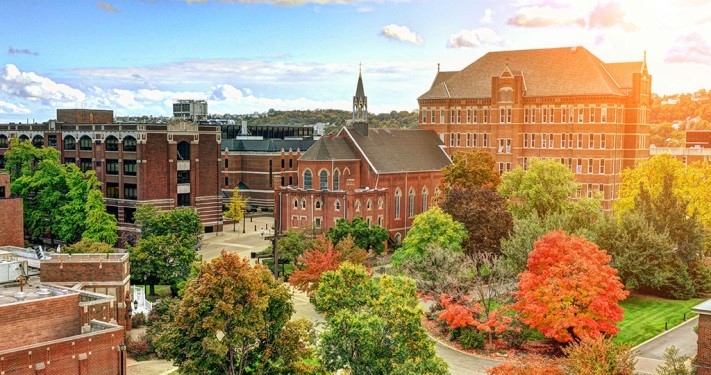 Overview
Overview
On August 9-10, 2016 at Duquesne University and the Allegheny County Medical Examiner’s Office in Pittsburgh, Pennsylvania, the Forensic Technology Center of Excellence (FTCoE) held the Courtroom Knowledge of Forensic Technology and the Impact on Frye and Daubert Standards workshop. The target attendees for the event were legal professionals including criminal court judges, prosecuting and defense attorneys, and legal academicians.
This workshop focused on introducing and enhancing the knowledge of innovative forensic technologies to legal professionals, including how newer technologies need to be supported in order to pass a Frye or Daubert test. Background information about technology and scientific methodologies included presentations and panel discussions by discipline specific experts. Case examples and vignettes were used to illustrate and define questions about technology and admissibility. Additionally, participants toured the Allegheny County Medical Examiner’s Office Laboratory Division in order to gain insight regarding the processing of forensic evidence. This workshop provided legal professionals the ability to use their knowledge of forensic technology advancements to better inform and help them in the legal decision making process, and potentially improve policy and practice.
Workshop Topics
► Admitting Scientific Evidence According to Frye/Daubert
► Understanding Validation, Certification, and Accreditation
► The Importance of New Technology – A practitioner’s viewpoint
► Presentation and Tour at Allegheny County Medical Examiner’s Office Laboratory Division
► Case Study with Judge Domitrovich
► Forensic Biology Overview – Admitting DNA Evidence
► Chemistry/Toxicology Overview– Sample preparation, Spectrometric Methods
► Challenges moving from Frye to Daubert
► Incorporating Technology into a Frye/Daubert Challenge – Case Examples and Group Discussion
Workshop Objectives
Upon completion of this workshop participants were able to:
► Comprehend the interaction of science and law as related to their specific professional responsibilities.
► Apply their knowledge of forensic technology to help make ethical decisions relating to the field of criminal justice.
► Use their knowledge of forensic science technology to provide advice and direction to the criminal justice community.
► Have an in-depth understanding of criteria necessary to evaluate technologies according to a Frye or Daubert challenge.
► Apply the knowledge of and make use of technological advances in the forensic sciences in legal casework, legal education, and judicial decisions.
Workshop Presenters
Frederick Fochtman, PhD | Director Forensic Science and Law, Duquesne University
Jane Campbell Moriarty, J.D. | Carol Los Mansmann Chair in Faculty Scholarship and Professor of Law, Duquesne University
Dan E. Krane, Ph.D. | Professor, Wright State University
Shawn P. Vorce, D-ABC | Technical Director, Chesapeake Toxicology Resources, LLC
Joshua C. Yohannan | Trace and Drug Chemistry Lab Manager, Allegheny County Office of the Medical Examiner
Lyndsie Ferrara, MS | Instructor, Forensic Science and Law, Bayer School of Natural and Environmental Sciences, Duquesne University
John T. Rago, JD | Associate Professor of Law, Duquesne University
Mandy Tinkey, MS | Manager of Operations, Allegheny County Office of the Medical Examiner
Stephanie Domitrovich, JD, PhD | Sixth Judicial District of Pennsylvania, Erie County Court House and American Academy of Forensic Sciences Jurisprudence Section Chair

